Gurbanguly Berdimuhamedov, the chair of the People’s Council of Turkmenistan, paid a two-day visit to Azerbaijan on July 16-17, 2025. Berdimuhamedov first met with Azerbaijani President Ilham Aliyev in Baku and then toured the liberated Karabakh region alongside President Ilham Aliyev. During the visit, Aliyev presented Berdimuhamedov with a horse named “Friendship.”
While no significant agreements were signed between the parties during the visit, Berdimuhamedov stated that the purpose of the visit was to deepen and develop bilateral relations and accelerate the implementation of new projects further. In other words, this visit is expected to complete previously signed yet incomplete agreements between the two countries in the fields of transportation and energy.
Caspian Sea cooperation
With the signing of the “Convention on the Legal Status of the Caspian Sea” in Aktau on Aug. 12, 2018, a significant issue between Turkmenistan and Azerbaijan was resolved. Following the agreement, a commission was established between Azerbaijan and Turkmenistan to address the division of the Caspian Sea bed. The commission held two meetings in 2022 and 2023. It is expected that the commission meetings, which have been suspended for the past year, will resume after Berdimuhamedov’s recent visit to Azerbaijan. In fact, their successful resumption has the potential to change the region’s energy landscape.
The second important issue expected to be finalized between the parties is the Memorandum of Understanding (MoU) signed between Azerbaijan and Turkmenistan on Jan. 21, 2021, regarding the joint exploration, development and exploitation of the “Friendship” hydrocarbon field in the Caspian Sea. This field has been a point of contention between the two countries for many years. However, the signing of this agreement managed to elevate relations between the two countries to a new level. According to the 2021 agreement, resources extracted from the Friendship field will be shared between the two countries, with all natural gas being exported through Azerbaijan. However, a final agreement between the parties on this issue is still required. It is expected that this process will also accelerate after this recent visit by Berdimuhamedov.
In March 2021, a natural gas swap agreement was signed between Azerbaijan, Turkmenistan and Iran. Azerbaijan subsequently purchased Turkmen natural gas via Iran. Due to disagreements between the parties regarding natural gas prices, the flow of natural gas ceased in early 2024. A solution to this issue is anticipated after the visit.
Azerbaijan could become a transit country for the export of Turkmen natural gas to Türkiye and Western markets. The MoU signed between Azerbaijan and the EU in Baku on July 18, 2021, on strategic energy cooperation included a provision on the export of Central Asian energy resources, including those from Turkmenistan, to Western markets via Azerbaijan. Meanwhile, on May 14, 2024, an agreement was signed between Türkiye, Azerbaijan and Turkmenistan for the export of Turkmen natural gas to Türkiye via Azerbaijan. This may require Turkmenistan to commit resources at a similar level to Azerbaijan’s investment in the Southern Gas Corridor.
The two countries may also cooperate in the field of green energy. In this field, an agreement similar to the one signed between Azerbaijan, Uzbekistan and Kazakhstan could be signed with Turkmenistan. This would enable the export of electricity produced from renewable energy sources in Turkmenistan to Türkiye and Europe through Azerbaijan.
Turkmenistan, Middle Corridor
Turkmenistan is also a key component of the Middle Corridor. Home to the largest port on the Caspian Sea, Turkmenistan has the potential to link Afghanistan to the open seas via the Caspian Sea-Azerbaijan-Türkiye route. The Lapis-Lazuli project, which connects Afghanistan to Azerbaijan through Turkmenistan, is vital for providing Afghanistan with access to the world’s oceans. This project, which has been on the agenda for many years, has regained importance with Afghanistan’s efforts to reintegrate into the global arena. The Afghan delegation, which attended the Economic Cooperation Organization (ECO) summit in Khankendi in July 2025, once again discussed this issue with the Azerbaijani side. Another important transportation project on the agenda is the China-Kyrgyzstan-Uzbekistan-Turkmenistan-Azerbaijan route, expected to strengthen the position of the Middle Corridor in global transportation.
Significant agreements have been signed between Azerbaijan, Turkmenistan and Türkiye in recent years, reflecting Turkmenistan’s active participation in the Middle Corridor. Berdimuhamedov’s visit increases the likelihood of these agreements being implemented. For example, a trade and economic cooperation agreement was signed between Azerbaijan, Türkiye and Turkmenistan on Aug. 22, 2022, and a MoU on customs cooperation was signed on Dec. 14, 2022. Therefore, the outcome of Berdimuhamedov’s visit to Azerbaijan is also of significant relevance to trilateral relations in the Azerbaijan-Türkiye-Turkmenistan format.
Turkmenistan’s activity in OTS
Unlike other Turkic states, Turkmenistan has been recognized as neutral by the U.N. since 1995 and has only served as an observer member of the Organization of Turkic States (OTS). However, the prospect of Turkmenistan’s full membership in the organization has gained prominence due to the deepening ties between the OTS and Turkmenistan, as well as recent geopolitical developments in the region. According to press reports, Turkmenistan is expected to become a full member of the organization at the OTS summit to be held in Baku later this year. This goal is desired and supported by all of the organization’s member states.
In conclusion, although Azerbaijan-Turkmenistan relations have had their ups and downs over the past 34 years, they have consistently been viewed positively. In this light, this visit is expected to revitalize bilateral relations and activate crucial projects that will reshape the future of the Eurasian region.

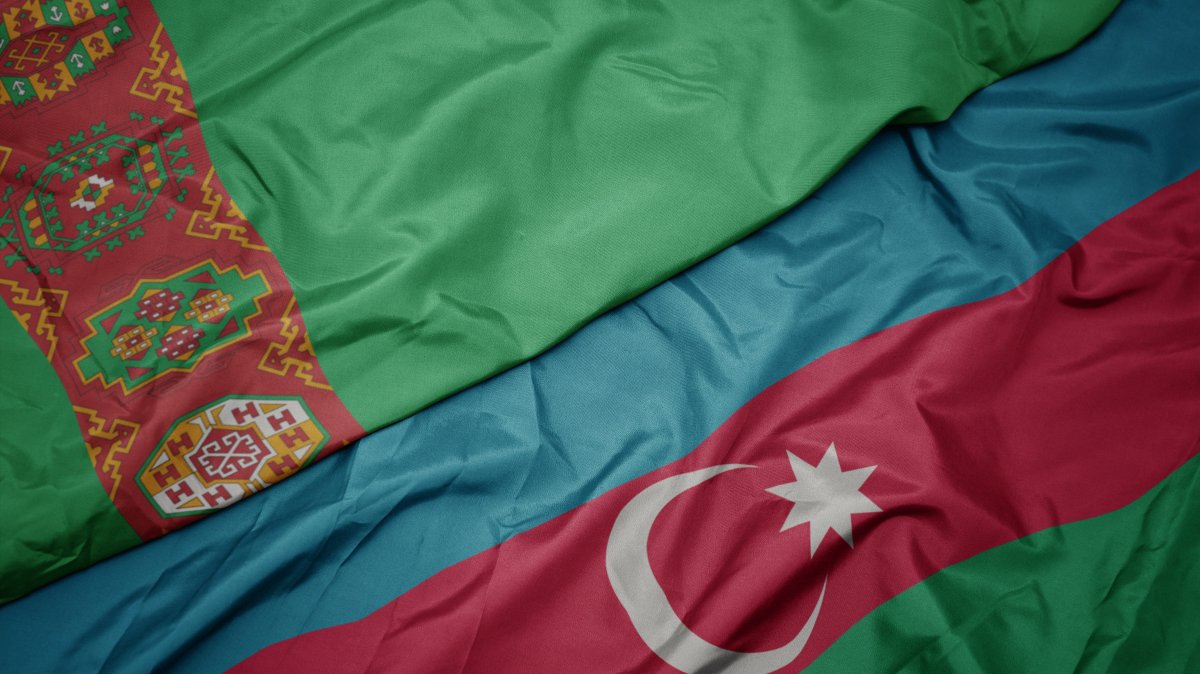




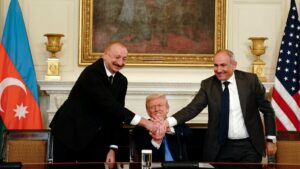


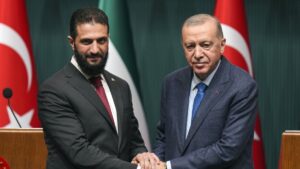





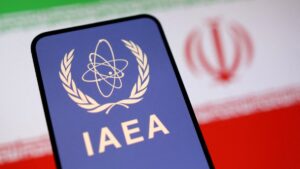
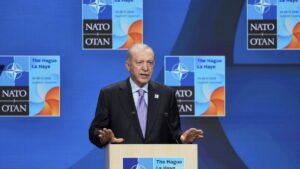
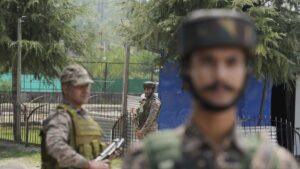


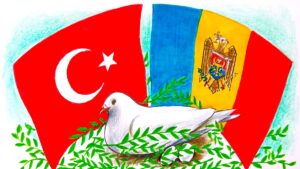

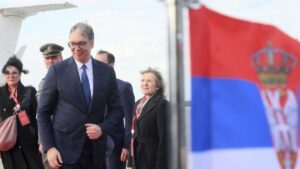






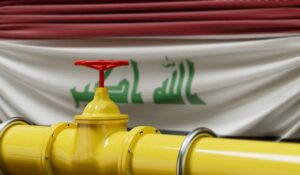

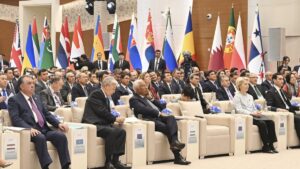
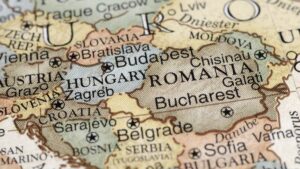



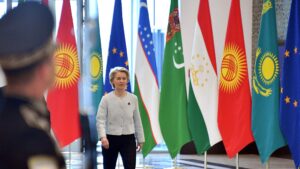

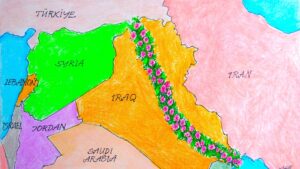



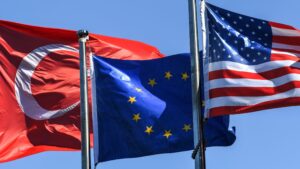
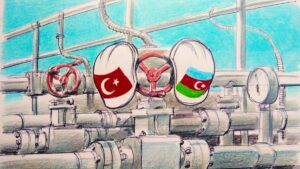



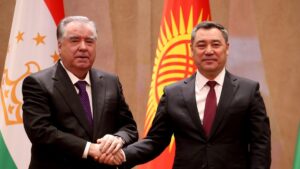
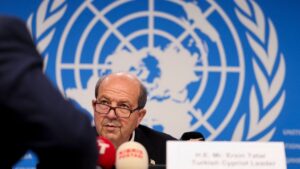
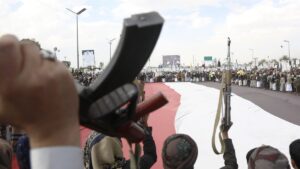


Be First to Comment